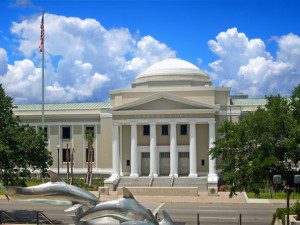With hundreds of millions of dollars a year hinging on their decision, Florida Supreme Court justices Friday began deliberating about whether to uphold a 2011 law that requires government workers to chip in 3 percent of their pay to the state retirement system.

A Leon County circuit judge this year found that the contribution requirement violated the rights of state and local workers who had been hired before the law took effect on July 1, 2011.
But some justices appeared skeptical about one of the key underpinnings of the lower-court decision — that a 1974 law created contractual rights shielding such workers from the retirement-system changes.
Justice Charles Canady said government workers can lose their jobs and questioned why they also can’t be forced to pay into the pension system.
“I have a hard time understanding how when someone does not have a continuing right to employment, (how) they have a continuing right to a particular benefit of employment,” he said. “That strikes me as anomalous.”
Similarly, Justice Barbara Pariente questioned why the Legislature would “bind itself forever, no matter what the budget crisis” to a law that would only allow increased benefits and prevent benefit cuts or mandatory employee contributions.
But Justice James E.C. Perry appeared to agree with opponents of the 2011 law who contend that lawmakers could only require the contributions from workers hired on or after July 1, 2011.
“You can prospectively change it, but not to those employees that were there,” Perry said.
Despite fierce political opposition from unions and government workers, the Republican-dominated Legislature and Gov. Rick Scott pushed through the pension changes as they dealt with a $3.6 billion budget shortfall. The mandatory contributions apply to far more than state workers, as school districts, county governments and many cities also are part of the Florida Retirement System.
The Florida Education Association and other groups filed the lawsuit last summer, but that did not prevent the state from starting to collect the contributions — a fact that could force it to refund money if it ultimately loses the case. Ron Meyer, an FEA attorney who argued before the court Friday, said the state could face giving back roughly $900 million.
Circuit Judge Jackie Fulford struck down the pension law in March, and the state’s appeal was fast-tracked to the Supreme Court without having to be heard in the 1st District Court of Appeal.
As a sign of the stakes involved in the case, a crowd filled the Supreme Court chambers Friday to hear the arguments. The audience included representatives of state and local unions, the Florida Association of Counties and the Florida Chamber of Commerce, which has been an outspoken supporter of the decision to require pension contributions.
Justices typically do not rule in such cases for months. Scott did not attend the hearing but released a statement saying the case was about maintaining a “responsible and sustainable” state budget.
“In 2011, the Legislature passed, and I signed, common-sense public pension reform, which requires public employees — like private-sector employees throughout Florida — to contribute to their retirement plans,” Scott said. “Prior to this reform, Florida was one of only three states that did not require public employees to contribute to their pensions.”
The Supreme Court arguments centered, in part, on the 1974 pension law and a 1981 court opinion that the state contends allowed it to require contributions from employees, regardless of when they were hired.
Raoul Cantero, a former Supreme Court justice who represented the state, said the 1981 opinion made clear the Legislature needs to have “flexibility to react to changing financial circumstances.” Responding to questions from justices, Cantero said the state could even eliminate the pension system, so long as it didn’t retroactively affect benefits that had been accrued before such a change took effect.
But Meyer said the 1974 law set up a system in which employees would not be required to contribute to their pensions. Meyer said Fulford, the circuit judge, found a “very clear contractual right” for workers hired before July 1, 2011.
“You can’t change the game in the middle of the game,” Meyer said.
Another issue in the case focuses on whether the law violated workers’ collective-bargaining rights, with Meyer arguing lawmakers passed the 2011 changes without allowing employees to negotiate them.
“The facial problem with this statute is, there is no room for any collective bargaining,” he said.
But Cantero said it would have been unworkable to negotiate the changes because workers in the retirement system are in hundreds of state and local bargaining units.
by Jim Saunders



[…] Supreme Court Begins Looking at Controversial Public Sector Pension FacebookLinkedInTwitter Posted in Florida-Supreme-Court Copyright © Richard E. Wolverton Esquire 2011. All Rights Reserved. […]